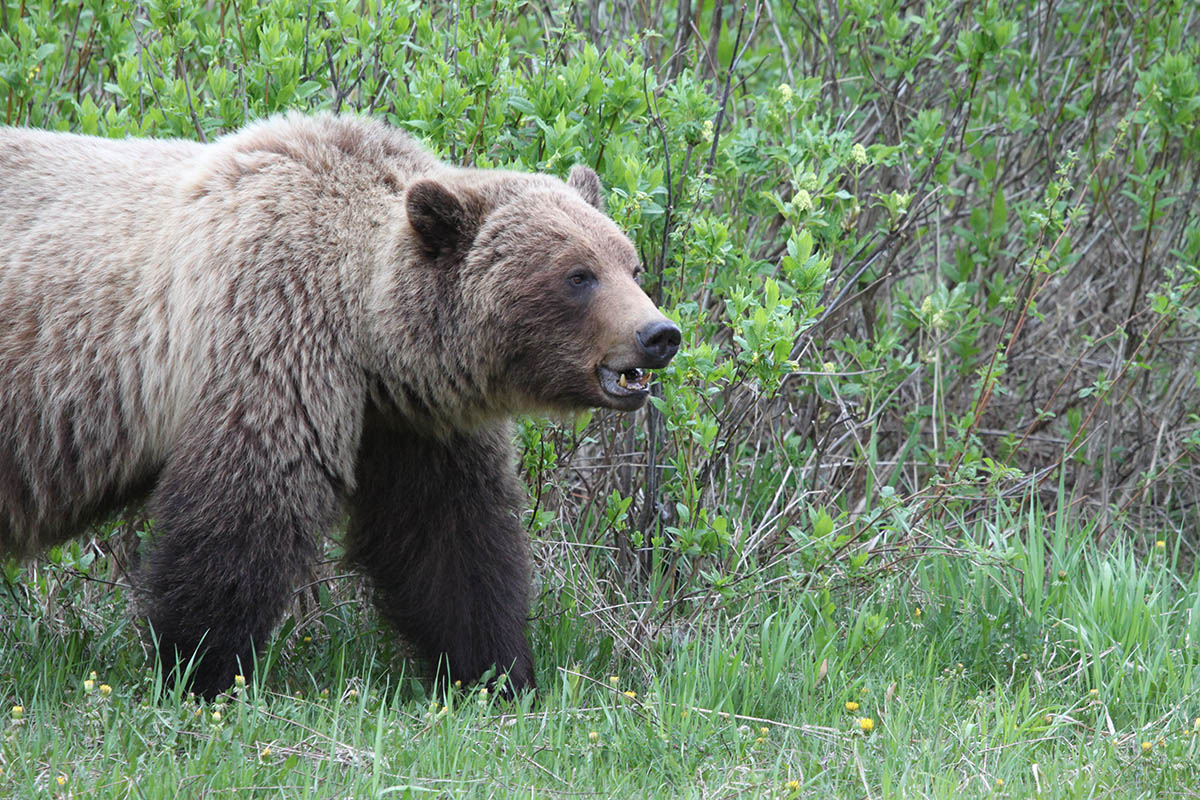
Keep grizzly bears, just like this one, safe by practicing wildlife safety tips. Photo credit: Mark Boyce
Spring has sprung in Alberta, and with it comes grizzly bear season.
While most bears try to avoid humans, sometimes their search for food brings them to settlements, towns, or campsites. Ecologist and wildlife expert Mark Boyce explains that food has a lot to do with the propensity for grizzly bears to get in trouble.
"Problem behaviour is exacerbated when fewer wild foods are available," explains Boyce, University of Alberta professor and Alberta Conservation Association endowed chair in fisheries and wildlife. "As bears learn they can access food in human settlements, they adopt problem behaviour that is very difficult to change."
Interestingly, Boyce notes, it is common that female grizzlies become nuisance bears. This is because the males dominate the best habitat, the farthest away from human settlements and with the richest wild food sources. In order to avoid male bears who will attack and kill cubs, female grizzlies will put themselves more at risk near roads and human settlements.
"The best way of managing problem behaviour in bears is prevention, or preventing attractants from being present in human settlements in the first place," explains Boyce. "Anything we can do to minimize contact between humans and bears will reduce the chances of bear mortality."
With Parks Canada providing free passes to all Canadian national parks in honour of the 150th anniversary of Canada's confederation, meaning more people will be visiting the mountains, keeping bear safety practices top of mind is more important than ever.
Headed to the mountains? Keep the following tips in mind.
- Bears have an incredibly strong sense of smell, so keep all garbage well contained, especially in the summer time. Store food and garbage in airtight containers, and bring your garbage out with you when you're camping.
- Only deposit garbage in bear-proof receptacles.
- Keep dog food indoors or sealed in airtight containers and stored with your own food while camping or in cottages.
- Do not use bird feeders or spread bird seed.
- If you see a bear, give it a wide berth, especially if it has cubs.
- While hiking, make plenty of noise to avoid surprising a bear on the trail.
- And of course, never feed or approach wildlife.